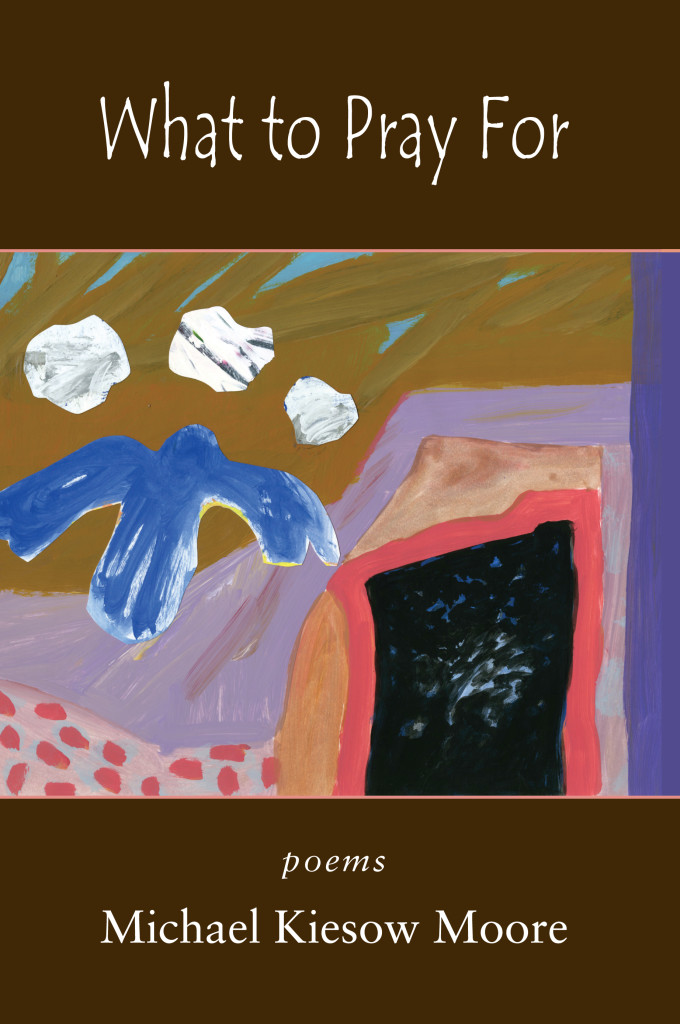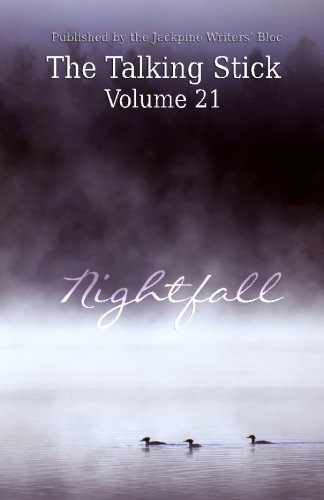Books
The Song Castle by Michael Kiesow Moore (Nodin Press, 2019)

Now available on amazon and bookshop.org.
Hear Garrison Keillor read two poems from The Song Castle on “The Writer’s Almanac”:
The Year Gentleness Died
Death Comes Knocking at My Door
What people are saying about The Song Castle:
“..as if love itself was made suddenly material,” Michael Kiesow Moore writes in one of this book’s beautiful poems. The project of these poems is to make love material and the poet does it by paying attention equally to kindness and mystery. Song Castle is a heartfelt book that feeds the heart. – Jim Moore, author of Underground: New and Selected Poems
In the title poem of Michael Kiesow Moore’s deeply moving new collection, the narrator writes, “Once we fill all these rooms, can we finally/find room enough for love?” This book answers the question. Yes. With range of subjects, with sections that guide us, we are with such a human voice here: the sorrows explored, made real, the memories both welcomed and haunting, the use of old myths to tell contemporary truths, the presence and absence of friends, and the narrator, honoring love and its power on every page.” – Deborah Keenan, author of ten collections, including Willow Room, Green Door: New and Selected Poems, and a book of writing ideas, from tiger to prayer.
At the center of Michael Kiesow Moore’s Song Castle beats the wide, awakened heart of one who wishes only the best for his fellow humans. In “Two Men Holding Hands,” for instance, his final hope for the men he sees is “that nothing happens,/that tonight and every time they walk/it is as ordinary as breathing.” Though Moore finds darkness enough in these times, especially in his grief following the losses of the AIDS Crisis, his poems nonetheless call forth the necessary stories he knows will help us all “welcome the coming sun/with songs of joy.” —James Crews, author of Telling My Father
Michael Kiesow Moore’s poems inhabit — in a phrase he’s borrowed from the surrealists — a “liberated space” in which freedom serves desire. Moore is able to confront deadly serious matters, such as the AIDS epidemic and racial bigotry, without sacrificing imagination and a honed sense of whimsy. These poems move effortlessly between the mythological and this world in which poets “lovingly trace the path of the Word.” A bedrock generosity underlies Moore’s varied emotional terrain. In the graceful music of The Song Castle, there is room for us all. —Thomas R. Smith, author of Windy Day at Kabekona
What to Pray For by Michael Kiesow Moore (Nodin Press, 2015)

Purchase a copy from amazon.com or Barnes & Noble.
In What to Pray For, Moore bears witness to loss, to bullying, to social injustice. With both precise honesty and a welcoming hand, he invites the reader to stories of not just death and dying, but the ways the departed continue to live in one’s life. Likewise he tells brutal tales of being bullied, and how many young people took their lives because of it.
The thread that connects the many themes of this poetry collection is the power of compassion to heal, not just one’s self, but the world. In asking “What to pray for?”, Moore shares the answers he finds from art, nature, the creative process, and conversations with angels.
What people are saying about What to Pray For:
What are poets for? The poet, Michael Kiesow Moore, gives one answer in his new collection of poems: to put mystery back in the moon. What are poets for? Each poet has a different calling, and different past to consider, different relationships to history and memory. In What to Pray For we realize Moore is called to witness, to cry out for peace, for justice. His beautiful poems ask readers to remember history, to reflect on myths, to honor our dead, and to value our own unique lives, our burdens and our blessings. In Day of Silence the poet writes: Now that the day of silence/is over, I make another vow:/on all other days but this/I will be anything but silent! And this is the vow Moore keeps. We read stories of early bullying he survives, of his path away from that brutality into the world, where he cares for friends dying from AIDS, and also claims the beauty in the world that he finds in music, dance, visual arts, and language. The poet asks what to pray for, and answers: begin the work you were born to do:/wake everyone else. What to Pray For is an abundant first book, soulful and memorable. —Deborah Keenan, is author of ten collections of poetry and a book of writing ideas, From Tiger to Prayer.
Michael Kiesow Moore passes through veils to the other side of mortality and back again. His verse in What to Pray For presents transcendent moments, as when a gay man leaves a bowl of soup on his lover’s coffin or Nijinsky performs his last dance. Moore does not avoid brutal experiences, yet always he finds moments of shining grace. Join this poet in his testimony of hope. —Denise Low, 2007-09 Kansas Poet Laureate
Micheal Kiesow Moore’s first book of poetry welcomes his readers into his imaginative world filled with pets, paintings, classical music, gourmet cooking, Greek mythology, and contemporary super heroes. These poems are keenly observant, the speaker often longing for peace, justice, and beauty: “if only I could—always—live in blue.” With sensitivity, kindness, and honesty, Moore’s poems dare and educate their readers, challenging us to deepen our search for the stillness, silence, and happiness within us all. —Kathryn Kysar, author of Pretend the World and Dark Lake
In one of the many harrowing, moving, and ultimately redemptive poems in this book Michael Kiesow Moore writes: Do not take my pain away from me./ I carry it for him who could bear it no longer,/ I bear it so that he can step free now, // light of all care. Here are poems of almost unimaginable generosity, forgiveness, and a joy illuminated from within by tenderness. How lucky we are to have this book! — Jim Moore, author of eight collections of poetry, most recently, Underground: New and Selected Poems
Anthologies

Among the Leaves: Queer Male Poets on the Midwestern Experience
Edited by Raymond Luczak (Handtype Press, 2012)

A Loving Testimony: Losing Loved Ones Lost to AIDS
Edited by Leslea Newman (Crossing Press, 1995)
Chapbooks

Peace Begins
The Loft Peace and Social Justice Writer’s Group, 2011
The Loft’s Peace and Social Justice Writers Group is a Minneapolis community of reflective individuals, culture critics, and humble souls with a worldwide focus, who come together on a quest to raise awareness and promote understanding. Their chapbook, Peace Begins, represents the voices of this group which has been meeting since 2006.
The works in the chapbook—poetry, stories, memoir—embody the group’s mission, “to renew and maintain a sense of hope for the future” and express the radical idea that it is our job to love to the best of our ability what we have been given right now.

Whimsies
Purchase a copy from amazon.com
Whimsies is a collaboration with poetry Michael Kiesow Moore and his artist Mom, Nora Moore. This chapbook presents images of Nora’s paintings accompanied by poems inspired by her art.
Journals

2013 Saint Paul Almanac
Edited by Kimberly
Nightingale Arcata Press, 2012

The Talking Stick (Volume 22): In Retrospect
Edited by Jackpine Writers’ Bloc
Jackpine Writers’ Bloc, 2013

The Talking Stick (Volume 21): Nightfall
Edited by Jackpine Writers’ Bloc
Jackpine Writers’ Bloc, 2012

Captured Dreams
Edited and published by Paper Darts, 2012